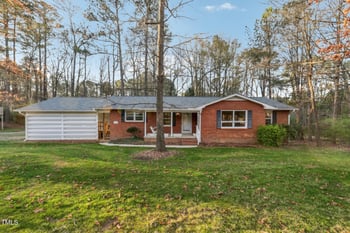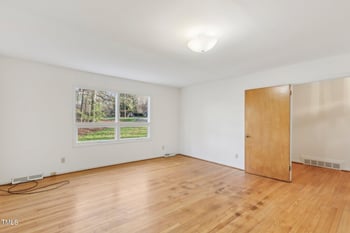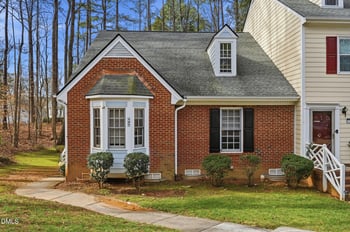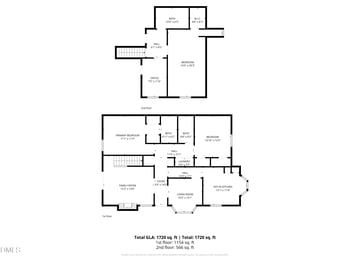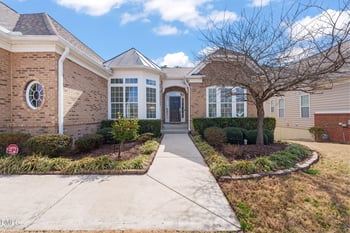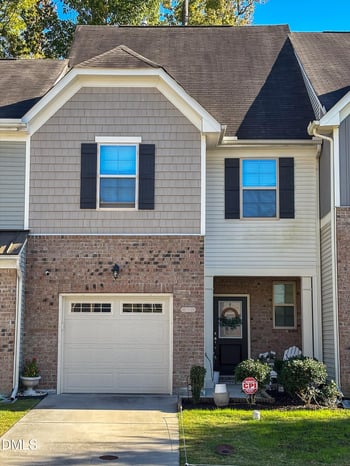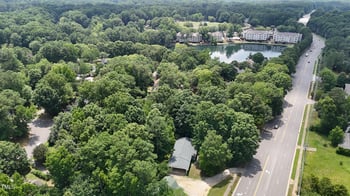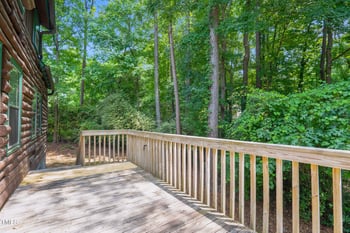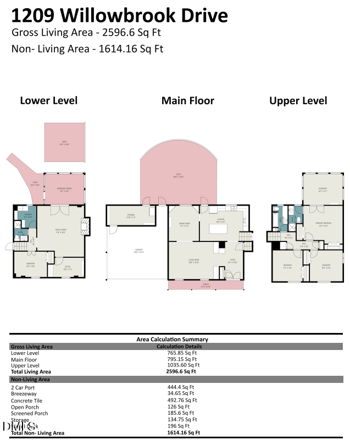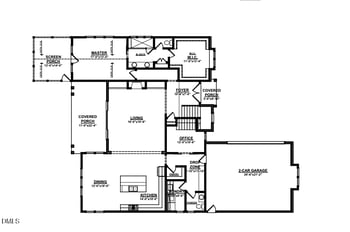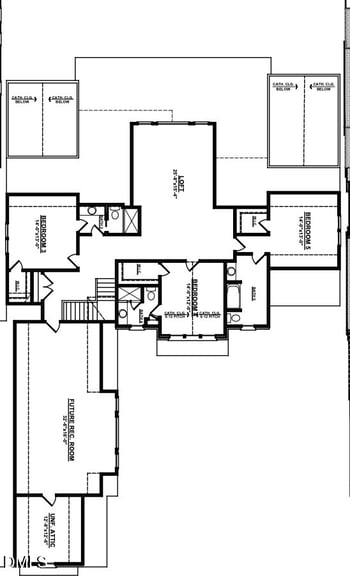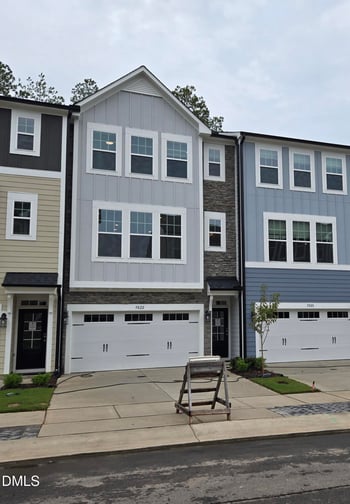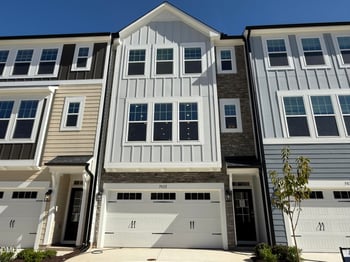Homes & Real Estate - Cary, NC
Information on Homes for Sale in Cary
Search the newest homes for sale and real estate listings in Cary with Raleigh Realty. On this page, you can view every property for sale in Cary, photos, listing details, school information, and more. We aim to make it easy for you to find a home you'll love in Cary. Our local Cary Realtors are ready to assist you, whether selling your house in Cary or helping you find a great property that suits your lifestyle. We are standing by to help, and please don't hesitate to call us at 919-249-8536!
Current Real Estate Statistics for Homes in Cary, NC
Cary, North Carolina, is a thriving town in the heart of the Triangle, offering a perfect balance of suburban comfort and urban convenience. Known for its top-rated schools, beautiful parks, and vibrant community, Cary has become one of the most sought-after locations in the state for homebuyers. With its strategic location near Raleigh, Research Triangle Park, and major highways, Cary offers unparalleled accessibility while maintaining a charming, family-friendly atmosphere. Below, we delve into homes for sale and real estate in Cary, NC, focusing on local amenities, attractions, schools, and the dynamic real estate market.
Types of Homes for Sale in Cary, NC
Cary's real estate market is diverse, catering to various buyers, including families, professionals, and retirees. The town features an impressive selection of housing options, ranging from modern townhomes to luxury estates:
1. Single-Family Homes
Single-family homes dominate the Cary real estate market. These homes are available in various styles, including traditional, contemporary, and craftsman. Many single-family homes feature spacious floor plans, large yards, and modern amenities. Prices typically range from $400,000 to over $1 million, depending on size, location, and features.
2. Townhomes and Condos
Cary offers a wide range of townhomes and condominiums for those seeking low-maintenance living. These properties are ideal for young professionals, retirees, or those looking to downsize. Prices for townhomes generally start around $300,000, while luxury condos in premium locations can exceed $700,000.
3. Luxury Homes and Estates
Cary boasts several upscale neighborhoods featuring luxury homes with high-end finishes, expansive layouts, and resort-style amenities. Communities such as Preston and MacGregor Downs are known for their golf courses, exclusive clubs, and stunning properties that often exceed $1 million.
4. New Construction Homes
As Cary continues to grow, new construction communities are flourishing. These homes feature the latest energy efficiency, smart home technology, and customizable designs. Popular new developments include Amberly and Carpenter Village, which offer a mix of single-family homes and townhomes with community amenities like pools, walking trails, and playgrounds.
5. Historic and Established Homes
For those who appreciate character and charm, Cary has established neighborhoods with mature landscaping and homes that reflect the area's history. Areas like downtown Cary offer properties with unique architectural styles and easy access to local amenities.
Popular Neighborhoods in Cary, NC
Cary is home to various neighborhoods, each offering distinct characteristics and amenities. Here are some of the most sought-after communities:
1. Preston
Preston is a prestigious golf course community known for its luxury homes and access to the Prestonwood Country Club. The neighborhood features tree-lined streets, top-tier amenities, and proximity to shopping and dining.
2. Amberly
Amberly is a master-planned community that caters to families with its resort-style amenities, including pools, fitness centers, and miles of greenways. The neighborhood offers a mix of new construction and resale homes.
3. MacGregor Downs
MacGregor Downs is an established neighborhood featuring custom-built homes and access to the MacGregor Downs Country Club. Its serene setting and beautiful lake views make it a favorite among buyers seeking upscale living.
4. Carpenter Village
Carpenter Village is a vibrant community offering a mix of single-family homes, townhomes, and condos. The neighborhood includes a central lake, walking trails, and a community pool.
5. Downtown Cary
Downtown Cary is the town's cultural hub, featuring historic homes, modern condos, and a walkable lifestyle. Residents enjoy access to unique shops, restaurants, and cultural attractions like the Cary Arts Center.
Real Estate Market Trends in Cary, NC
The real estate market in Cary is highly competitive, reflecting its desirability and strong demand. Key trends include:
1. High Demand
Cary’s location, amenities, and quality of life have made it a top buyer choice. Homes in desirable neighborhoods often sell quickly, with multiple offers above the asking price.
2. Appreciating Home Values
Home values in Cary have steadily increased due to limited inventory and high demand. This trend makes Cary an attractive market for both homeowners and investors.
3. New Developments
The continued growth of the Triangle area has spurred the development of new neighborhoods and communities. Buyers can expect modern homes with state-of-the-art features in these new developments.
4. Competitive Market
The Cary market is competitive with limited inventory and a strong influx of buyers. Buyers should be prepared to act quickly and make strong offers.
Local Amenities and Attractions
Cary offers abundant amenities and attractions that enhance the quality of life for its residents. Here are some highlights:
1. Parks and Green Spaces
Cary is known for its beautiful parks and outdoor spaces:
-
Fred G. Bond Metro Park: A 310-acre park featuring a lake, trails, and sports facilities.
-
Hemlock Bluffs Nature Preserve: Offers hiking trails and stunning natural scenery.
-
Greenways: Cary boasts over 80 miles of greenways for walking, running, and biking.
2. Shopping and Dining
Cary provides a variety of shopping and dining options:
-
Cary Towne Center: A shopping destination featuring popular retailers and dining establishments.
-
Downtown Cary: Home to unique boutiques, cafes, and restaurants.
-
Parkside Town Commons: Offers a mix of shops, restaurants, and entertainment venues.
3. Cultural Attractions
Cary’s cultural scene includes:
-
Cary Arts Center: Hosting performances, exhibits, and workshops.
-
Koka Booth Amphitheatre: A premier outdoor venue for concerts, movies, and festivals.
-
Downtown Events: Seasonal events like the Lazy Daze Arts & Crafts Festival unite the community.
Schools in Cary, NC
Cary is served by Wake County Public Schools, one of the state's largest and most highly rated school districts. Notable schools include:
-
Green Hope High School: Known for its strong academics and extracurricular programs.
-
Davis Drive Middle School: A top-rated middle school focusing on STEM education.
-
Mills Park Elementary School: Offers a well-rounded curriculum and excellent resources.
Additionally, Cary has several private and charter schools, such as Cary Academy and Triangle Math and Science Academy, providing families with various educational options. Proximity to universities like NC State University and Duke University further enhances access to higher education.
Tips for Homebuyers in Cary, NC
If you’re considering purchasing a home in Cary, here are some tips to navigate the market:
1. Work with a Local Realtor
A knowledgeable local realtor can help you find the right home and navigate the competitive market.
2. Get Pre-Approved
Securing mortgage pre-approval will strengthen your offer and expedite the buying process.
3. Act Quickly
With homes selling quickly, be prepared to make decisions and submit offers promptly.
4. Explore Neighborhoods
Visit different neighborhoods to find the one that best fits your lifestyle and needs.
Why Choose Cary, NC?
Cary offers an exceptional quality of life with its suburban comfort, modern amenities, and proximity to urban centers. Here are some reasons why homebuyers choose Cary:
-
Top-Rated Schools: Access to some of the best schools in North Carolina.
-
Diverse Housing Options: There's something for everyone, from townhomes to luxury estates.
-
Community Spirit: Cary’s events and amenities foster a strong sense of community.
-
Convenient Location: Easy access to Raleigh, Durham, and Research Triangle Park.
-
Recreational Opportunities: Abundant parks, greenways, and cultural attractions.
Cary Homes for Sale
Cary, North Carolina, is a dynamic and desirable place to live, offering a wide range of housing options, top-notch amenities, and a strong sense of community. Whether you're drawn to its excellent schools, outdoor spaces, or vibrant downtown, Cary has something for everyone. If you're ready to explore homes for sale in Cary, NC, contact us to connect with a local expert who can guide you through the homebuying process.

